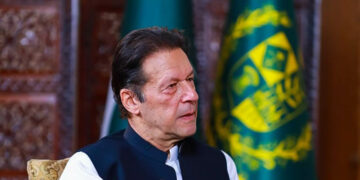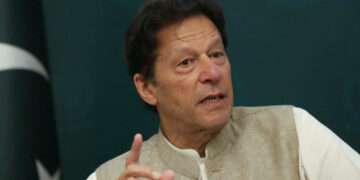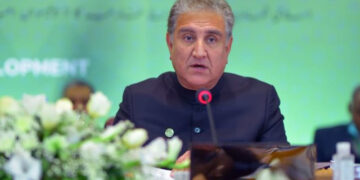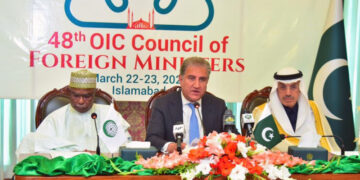Reflecting what it had wished for Punjab, the government on Thursday pushed through the National Assembly a bill providing for party-less local government (LG) elections in Islamabad in the face of opposition ridicule.
But the fate of the bill envisaging creation of a metropolitan corporation for the Islamabad Capital Territory, to be elected by members of new union councils, seems uncertain as opposition parties dominate the Senate and can block its adoption there in the present shape. The government accepted several amendments proposed by the opposition PPP to the Islamabad Capital Territory Local Government Bill, such as specifying the minimum representation on the metropolitan corporation for women (33 per cent), peasants/workers, non-Muslims and youth (5pc each) and technocrats (2pc). But it rejected two key amendments that would have provided for party-nominated candidates, prompting opposition allegations that the ruling PML-N was deviating from the famous charter of democracy it had signed with the PPP in 2006 and retaining the legacy of three military dictators, including General Zia-ul-Haq. Strangely, Minister of State for Parliamentary Affairs Sheikh Aftab Ahmed seemed to take credit for imitating non-party LG elections held by General Zia in 1980s, which were followed by non-party elections to the National and provincial assemblies.
[contentblock id=2 img=gcb.png]
“After all such (party-less) elections were held under Zia-ul-Haq,” he said, provoking protests from PPP benches. Even then he went on advancing what was described by many lawmakers as an apparently hollow argument that allowing political parties to field candidates would deprive residents of a Mohalla, locality or a village of their “fundamental right” to choose an independent candidate of their choice rather than be restrained by parties. That logic was rejected by PPP lawmaker Nafisa Shah who said that it was actually the government which sought to restrict the people’s right of choice by barring them from choosing between an independent and a party candidate. But the main onslaught on the ruling party came from Leader of Opposition in the National Assembly, Khursheed Ahmed Shah. He said that the PML-N’s rejection of two amendments proposed by the PPP, its previous move to hold party-less LG elections in Punjab, which it ruled, while the three other provinces had opted for party-based polls and the recent abortive attempt to amend the constitution to provide for Senate elections by show of hands showed that the party lacked confidence in itself. The PML-N’s plans for non-party LG polls in Punjab were foiled by a Lahore High Court ruling in favour of party-based elections.
[contentblock id=3 img=adsense.png]
PPP, MQM WALKOUTS: After the clash between the two main parties, in which Awami National Party’s parliamentary leader Ghulam Ahmed Bilour supported the PPP at a much later stage, only about 30 members were left in the house to take part in the vote on the bill after walkouts staged by the PPP and the Muttahida Qaumi Movement (MQM) on different grounds. The PPP protested against police baton-charge on farmers protesting against high prices of agricultural inputs in Lahore on Wednesday. The MQM agitated against an ongoing crackdown “against the party” in Karachi and what a party member, Asif Hasnain, called derogatory remarks made by Pakistan Tehreek-i-Insaf Chairman Imran Khan in a speech in Mirpur, Azad Kashmir, on Wednesday.












